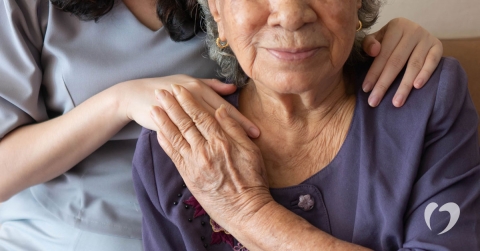Tips for Cardiac Patient Caregivers

Cardiac patient caregivers play an important role in recovery after a heart attack or heart surgery or when living with a chronic heart condition. Too often caregivers can feel overwhelmed or isolated in their role. Finding support networks offered through a hospital or connecting with other cardiac patient caregivers in other ways can be extremely beneficial.
If you are new to caregiving, you probably have a lot of questions and uncertainty about where to begin or how to best manage things over time. Here are some tips for setting yourself and your loved one up for success.
Paperwork
When it comes to medical treatment, records, and hospital information, there are some legal documents that need to be in place. Doctors are bound by rules that protect patient privacy and ensure proper consent for treatment. Take the time to get the paperwork in place in advance, if possible.
Important forms include a HIPAA release, which allows medical staff to share information about your loved one’s treatment, and a medical power of attorney, which allows you to make decisions on your loved one’s behalf if they are unable. Though it may feel awkward or difficult to create and sign these papers, it is necessary for open communication with staff and to protect your loved one during their treatment.
Communication
Communication with the hospital staff is important, but so is communication between you and your loved one. They will have preferences on how they like to be cared for, as well as needs that may be hard to express in the moment. Keeping open communication and being willing to listen are important parts of caregiving. Recovery from surgeries and cardiac events can involve pain and tense moments, which can at times be taken out on a caregiver. Having a foundation of great communication can smooth the process.
In addition to your loved one communicating their needs and preferences, be sure you communicate your needs to your loved one. If you need more direct requests or aren’t sure how to provide the best care, honest conversation can help.
Self-care
When caregiving, it is tempting to think that your needs come last and can be taken care of later. But the truth is that you cannot care for others when you are burnt out or your physical needs are neglected. Maintaining your own physical, mental, and spiritual health is key to being able to adequately support your loved one. This may mean reaching out to other family and friends to support you, provide a meal train, or fill in while you get some rest.
Knowledge
Heart conditions and how to care for heart patients can involve a lot of specialized terms and information. There are many great online resources for technical information about your loved one’s condition and what you need to know to care for them. Take the time to understand your loved one’s condition and ask all the questions you need to of their medical staff.
Caregiving is a wonderful expression of your love for a friend or family member. It is vital for their recovery and management of their condition. But it also can be a weighty task at times, and it is important to know you are not alone. There are millions of other caregivers out there who are walking this road, and many resources exist for them. Take the time to find your community and connect with them plus focus on your own well-being during your cardiac patient caregiver journey.




